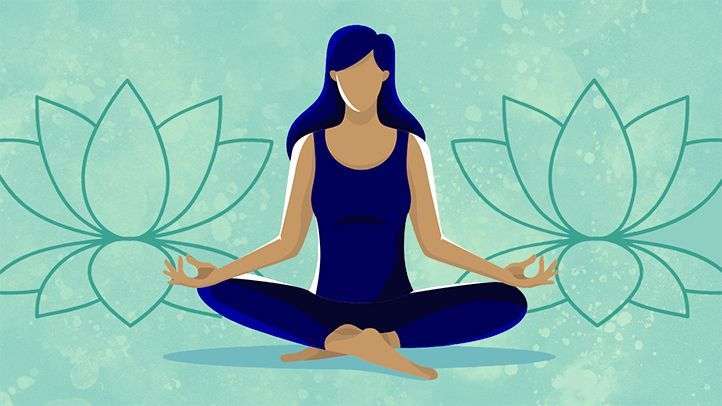Self-Care: The Path to a Balanced Life
In the hustle and bustle of modern life, it’s easy to forget about caring for ourselves. However, self-care is not a luxury; it is a fundamental aspect of maintaining a balanced and fulfilling life. In this article, we will explore the importance of self-care and discover practical ways to incorporate it into our daily routine.
1. Understanding Self-Care
Self-care is the practice of intentionally taking care of your physical, emotional, and mental well-being. It involves nurturing yourself and making choices that prioritize your health and happiness.
2. Recognizing Your Needs
Start by recognizing your unique needs and what brings you joy and relaxation. Everyone’s self-care looks different, so it’s essential to identify activities and practices that resonate with you.
3. Setting Boundaries
Establishing healthy boundaries is crucial for self-care. Learn to say no to commitments that overwhelm you and prioritize activities that align with your well-being.
4. Making Time for Yourself
Set aside dedicated time for self-care regularly. Whether it’s a few minutes each day or longer periods on the weekends, creating time for yourself is essential for rejuvenation.
5. Prioritizing Sleep
Quality sleep is a pillar of self-care. Create a calming bedtime routine and aim for consistent, restful sleep to support physical and mental rejuvenation.
6. Engaging in Physical Activity
Regular exercise not only benefits your body but also has a positive impact on your mood and mental health. Find activities you enjoy, such as dancing, hiking, or yoga, and make them a part of your routine.
7. Nourishing Your Body
Fuel your body with nutritious foods that support your overall well-being. A balanced diet contributes to increased energy levels and improved mental clarity.
8. Practicing Mindfulness
Incorporate mindfulness practices into your daily life. Mindfulness meditation, deep breathing, or simply being present in the moment can reduce stress and increase self-awareness.
9. Engaging in Hobbies
Set aside time for hobbies and activities that bring you joy and fulfillment. Whether it’s painting, gardening, or playing a musical instrument, engaging in hobbies can be a form of therapeutic self-care.
10. Creating a Relaxation Space
Designate a space in your home where you can relax and unwind. Fill it with comforting elements, such as soft blankets, soothing scents, and calming decorations.
11. Digital Detox
Take regular breaks from screens and digital devices. Disconnecting from technology allows you to be present in the real world and reduce mental clutter.
12. Journaling
Keeping a journal can help process emotions, gain insights, and release stress. Write freely about your thoughts, feelings, and experiences.
13. Social Connections
Nurture meaningful relationships with friends and loved ones. Social connections provide support and contribute to emotional well-being.
14. Embracing Solitude
Allow yourself moments of solitude and quiet reflection. Solitude can be a time for introspection and personal growth.
15. Practicing Positive Affirmations
Use positive affirmations to foster self-compassion and confidence. Affirmations can counter negative self-talk and build a more positive mindset.
16. Engaging in Acts of Kindness
Perform acts of kindness towards yourself and others. Acts of kindness cultivate a sense of joy and interconnectedness.
17. Seeking Professional Support
If needed, don’t hesitate to seek support from a therapist or counselor. Professional guidance can be valuable for personal growth and overcoming challenges.
18. Mindful Eating
Practice mindful eating by savoring your meals and being aware of hunger and fullness cues. This approach fosters a healthier relationship with food.
19. Laugh and Find Humor
Laughter is a powerful form of self-care. Seek opportunities for humor and joy in your daily life.
20. Embracing Imperfection
Accept that it’s okay to be imperfect and make mistakes. Self-care includes self-compassion and understanding.
21. Celebrate Achievements
Celebrate your accomplishments, no matter how small. Acknowledge your efforts and successes.
22. Nature Connection
Spend time in nature to recharge and reconnect with the natural world.
23. Limiting Media Exposure
Be mindful of the media you consume and limit exposure to negative news or content that triggers stress.
24. Emotional Release
Find healthy ways to release emotions, such as talking to a trusted friend or engaging in creative expression.
25. Embrace Change and Growth
Embrace change as a part of life and welcome personal growth. Self-care involves being open to new experiences and opportunities.
26. Learn to Say “No”
Recognize that saying “no” to certain commitments or obligations is essential for protecting your time and energy. Prioritize your well-being by setting boundaries and only taking on what you can handle.
27. Practice Gratitude
Cultivate a gratitude practice by regularly expressing appreciation for the positive aspects of your life. Gratitude can shift your focus towards positivity and increase feelings of contentment.
28. Develop a Relaxation Routine
Create a relaxation routine that helps you unwind and de-stress. This could include activities like taking a bath, practicing gentle stretches, or listening to calming music.
29. Embrace the Power of “Me-Time”
Schedule regular “me-time” where you engage in activities that bring you joy and recharge your energy. This time is solely for you to relax and indulge in self-care.
30. Set Realistic Goals
Avoid overwhelming yourself with unrealistic expectations. Set achievable goals and celebrate your progress as you work towards them.
31. Unplug from Technology
Take occasional breaks from technology to give your mind a rest from constant connectivity. Use this time to engage in mindful activities or spend time in nature.
32. Learn Stress-Reduction Techniques
Explore stress-reduction techniques, such as progressive muscle relaxation, guided imagery, or mindfulness-based stress reduction (MBSR) programs.
33. Practice Active Listening
When engaging in conversations with others, practice active listening by giving your full attention and showing empathy. This fosters deeper connections and strengthens relationships.
34. Prioritize Self-Reflection
Allocate time for self-reflection to gain insights into your emotions, thoughts, and experiences. Self-reflection can lead to personal growth and self-awareness.
35. Challenge Negative Self-Talk
Be mindful of negative self-talk and actively challenge it. Replace self-criticism with self-compassion and kindness towards yourself.
36. Learn Relaxation Breathing
Learn relaxation breathing techniques, such as diaphragmatic breathing or 4-7-8 breathing, to promote relaxation and reduce stress.
37. Create a Self-Care Toolkit
Compile a self-care toolkit with items that bring you comfort and joy, such as favorite books, calming teas, or scented candles.
38. Take Short Breaks
Incorporate short breaks throughout your day to step away from tasks and refresh your mind. Even a few minutes of stretching or deep breathing can make a difference.
39. Engage in Random Acts of Kindness
Perform random acts of kindness for others without expecting anything in return. Acts of kindness boost your mood and contribute to a sense of purpose.
40. Learn to Forgive Yourself
Practice self-forgiveness for past mistakes or perceived failures. Treat yourself with the same kindness and understanding you would offer a friend.
41. Develop a Bedtime Ritual
Establish a calming bedtime ritual to signal to your body that it’s time to wind down and prepare for restful sleep.
42. Practice Resilience
Resilience is the ability to bounce back from challenges and setbacks. Cultivate resilience by viewing obstacles as opportunities for growth and learning.
43. Seek Supportive Relationships
Surround yourself with supportive and positive individuals who uplift and encourage you.
44. Limit Exposure to Negative Influences
Be mindful of the content you consume, whether it’s from news sources or social media. Limit exposure to negative influences that can impact your mood and outlook.
45. Take Nature Walks
Spend time in nature regularly, taking leisurely walks or simply sitting outdoors to connect with the natural world.
46. Explore Creative Outlets
Engage in creative activities that allow you to express yourself, such as painting, writing, or crafting.
47. Practice Deep Sleep Hygiene
Create a sleep-friendly environment by keeping your bedroom cool, dark, and free from distractions to enhance the quality of your sleep.
48. Embrace Laughter Yoga
Consider trying laughter yoga, a practice that combines deep breathing with laughter to release tension and promote joy.
49. Use Positive Visualization
Practice positive visualization by imagining yourself succeeding in various aspects of life. Visualization can boost confidence and motivation.
50. Celebrate Self-Care Wins
Acknowledge and celebrate your self-care efforts and accomplishments. Celebrating wins, no matter how small, reinforces positive habits.
Conclusion
Self-care is not a one-time event but a continuous journey of nurturing yourself physically, emotionally, and mentally. By prioritizing self-care, you create the foundation for a balanced and fulfilling life. Remember that self-care is not selfish; it allows you to show up fully in all aspects of your life. Embrace self-care as an act of love and compassion towards yourself, and experience the positive impact it brings to your overall well-being.
FAQs
- Can self-care benefit my productivity and performance in other areas of life?
- Yes, self-care enhances overall well-being, which can positively impact productivity, focus, and performance in various aspects of life.
- How can I find time for self-care in a busy schedule?
- Prioritize self-care by scheduling dedicated time for it, even if it’s just a few minutes each day. Recognize that taking care of yourself is essential for your overall health and happiness.
- Is it normal to experience guilt when practicing self-care?
- It is common to experience guilt, especially if you are used to prioritizing others’ needs over your own. However, remember that self-care is essential for your well-being and allows you to better care for others.
- Can self-care help reduce stress and anxiety?
- Yes, self-care practices can significantly reduce stress and anxiety by promoting relaxation and supporting emotional well-being.
- How can I encourage others to practice self-care?
- Lead by example and share the benefits of self-care with others. Encourage open conversations about mental health and well-being, and support others in their self-care journeys.
- Is self-care only about relaxation and leisure activities?
- Self-care encompasses a wide range of activities that promote well-being, including relaxation, exercise, nourishing your body, setting boundaries, and practicing mindfulness.
- Can self-care help improve relationships with others?
- Yes, when you prioritize self-care, you are better equipped to maintain healthy boundaries and offer your best self in relationships.
- How can I overcome feelings of guilt when prioritizing myself?
- Remind yourself that self-care is essential for your overall well-being, and taking care of yourself enables you to be more present and supportive for others.
- Can self-care help reduce burnout and stress?
- Yes, regular self-care practices can significantly reduce burnout and stress by promoting relaxation and replenishing your energy.
- How can I incorporate self-care into a busy lifestyle?
- Start with small, manageable self-care activities that can easily fit into your daily routine. Gradually expand your self-care practices as you make it a priority in your life.
Do follow us for more https://uniqverses.com/










One thought on “Self-Care: The Path to a Balanced Life”